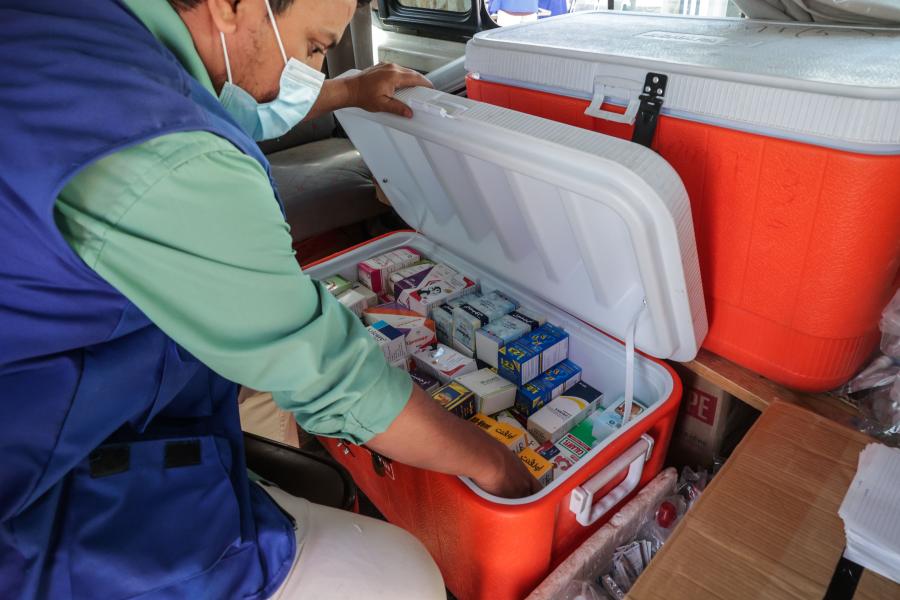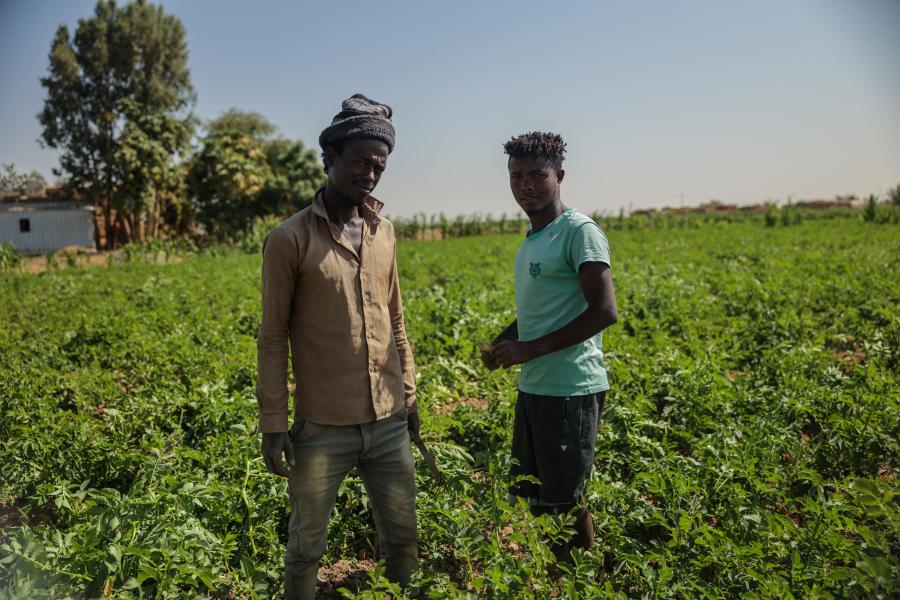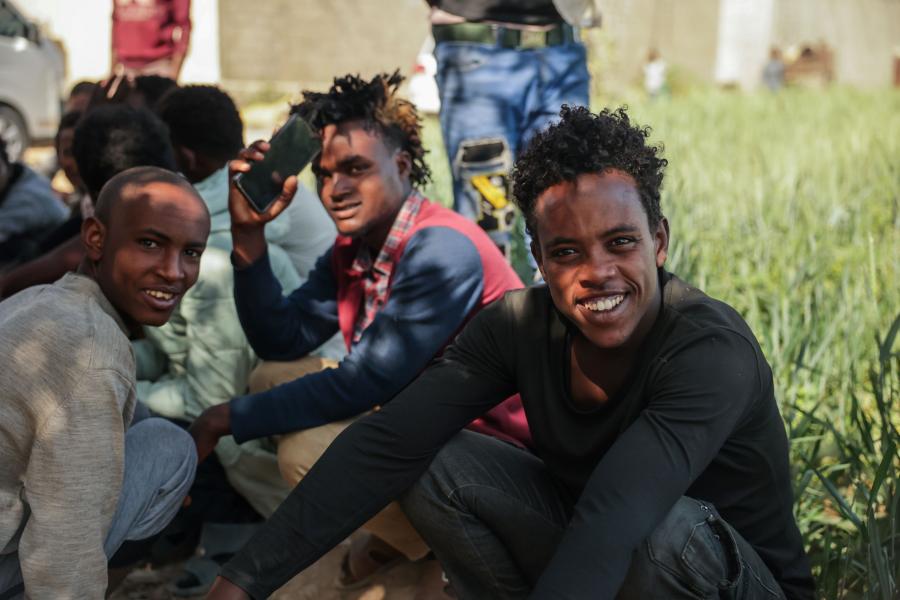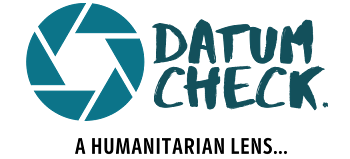Ma’rib, Yemen
Adnan’s face lights up as soon as he spots the medical bus pulling up near his migrant settlement. He has been struggling with a fever for weeks now and is desperate for some relief. He hopes today he will find the answer he has been searching for.
Several times a week, healthcare professionals working with the International Organization for Migration (IOM) set up near Adnan’s settlement in Ma’rib for three to six hours. Here, both internally displaced people and migrants like Adnan can access vital medical assistance.
“It’s sad to see such a large number of people, who are already struggling with being far from home, also facing serious health issues,” explains Doctor Abdulrahman Alqitewy, who works with IOM’s mobile medical team (MMT) in Ma’rib. “We provide medical care to migrants for various illnesses and injuries, but we often see migrants seeking help for severe wounds from stabbings or even gunshot wounds.”
When Adnan unexpectedly experienced severe shortness of breath, he first consulted with some of his friends, who suggested he buy medicine from a pharmacy, but this didn’t alleviate his symptoms. When the MMT pulled up, he decided to go and investigate and brought along some money just in case.
“To my surprise, they provided all the necessary medical care, including medication, asked questions about my health, and even referred us to hospitals for further treatment – free of charge!” he recalls.
Despite the ongoing conflict, thousands of migrants like Adnan continue to transit through Yemen each year in hopes of reaching the Gulf countries to earn an income and support themselves and their families. Soon after he arrived in Ma’rib, an acquaintance introduced him to a group of migrants working in a potato field, where Adnan has been employed ever since.

“Among all the jobs I’ve had, working on farms has been the most challenging,” Adnan explains. “It requires a lot more skill and stamina than you might think. We work long hours under the scorching sun.”
In Ma’rib, migrants reside primarily in migrant settlements, while others live in small shelters on the farms that employ them during harvest season. Living in dire conditions, they often face challenges accessing clean water and healthcare services. “We settle wherever we find a job,” Adnan explains. “If not, we sleep wherever we find a soft spot on the ground.”
Despite the challenging circumstances, the migrant community remains tightly knit. “We help and support one another,” Adnan says. If one of us feels sick or tired, we will assign them lighter tasks in the fields so that they can still earn a wage, particularly the younger ones. If one of us feels sick, we pool money together and take them to the nearest hospital.”

With the ability to reach displacement sites and communities outside health facilities’ coverage areas, the MMTs serve as a lifeline for those who otherwise lack access to critical healthcare services. Additionally, MMTs conduct home visits for individuals unable to access nearby health centers, ensuring that healthcare reaches even the community’s most vulnerable members.
The teams comprise a multidisciplinary team of healthcare professionals, including general practitioners, medical assistants, nurses, midwives, pharmacists, and psychologists. They ensure that people receive timely medical care, including referrals when necessary.
Adnan was relieved to receive prompt medical attention without worrying about the costs. All the symptoms pointed to a viral infection in his respiratory system, which had led to issues such as limb numbness and fever. He felt fortunate to have found help when he needed it the most.

MMTs are part of IOM’s comprehensive efforts to improve access to emergency life-saving and primary healthcare services, including medicine and medical supplies, for people like Adnan and other vulnerable migrants. Last year alone, these teams assisted nearly 91,000 migrants and displaced people across the country and over 51,000 in Ma’rib specifically, highlighting the indispensable role organizations like IOM play in bridging healthcare gaps for people on the move.
EU Humanitarian Aid funds IOM’s mobile medical teams in Yemen, USAID’s Bureau for Humanitarian Assistance (BHA), and the Government of Japan.
Haithm Abdulbaqi, Media and Communications Assistant with IOM Yemen, wrote this story.

